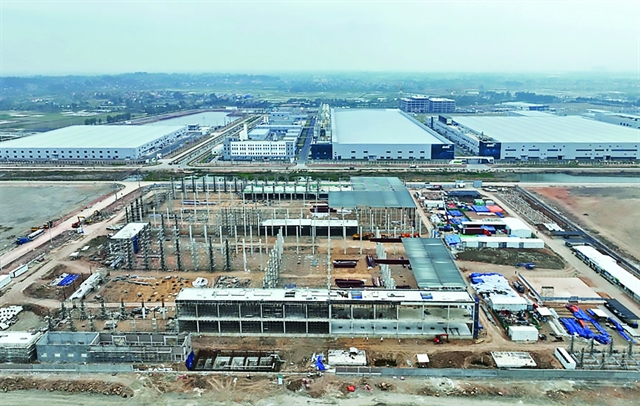As Việt Nam's bank credit-based growth has almost reached its limit, the country needs to shift to the capital market including stocks and bonds to meet its double-digit growth targets in the coming years.

HÀ NỘI — As Việt Nam’s credit-driven growth approaches its limit, experts say the country must pivot towards developing its capital markets, including stocks and bonds, to sustain double-digit economic expansion in the coming years.
According to Phạm Lưu Hưng, Chief Economist of Saigon Securities Incorporation (SSI), before the COVID-19 pandemic, Việt Nam’s GDP grew by nearly 7 per cent per year on average, with much of that growth fuelled by bank lending. Since the pandemic, the economy has gradually recovered, but its dependence on bank credit has deepened.
IMF data show Việt Nam’s credit-to-GDP ratio has reached nearly 150 per cent — a very high level compared to other regional economies. This indicates that growth has largely been credit-based rather than driven by productivity and long-term investment, posing risks to financial stability.
Hưng warned that continuing to rely on bank lending would heighten systemic risks, pressure inflation and undermine economic stability.
“If the country wants to grow by 8–10 per cent, it has no choice but to shift from the monetary market to the capital market,” he said.
Currently, Việt Nam’s total private deposits amount to about VNĐ7.7 quadrillion (US$300 billion) — a vast pool of domestic capital. If only 5 per cent of that were channelled into stocks, the market could gain an additional $15 billion — far exceeding the $1–2 billion typically drawn from foreign exchange-traded funds after a market upgrade.
Many financial analysts agree that the driving force for 10 per cent growth by 2026 cannot continue to come from bank lending alone, but must instead be powered by a robust capital market and strong domestic capital flows, underpinned by confidence, transparency and improved capital absorption capacity.
Experts describe credit growth as the old driver, while upgrading the stock market and implementing institutional reforms are seen as the “new driver” for unlocking medium- and long-term funding needed to fuel high economic growth in the coming years.
Bùi Hoàng Hải, Vice Chairman of the State Securities Commission (SSC), said FTSE Russell’s decision to upgrade Việt Nam to emerging market status marked not only a historic milestone, but also a new starting point for national capital market development.
To maximise opportunities from the upgrade, Hải said the SSC and the Ministry of Finance had launched a comprehensive action plan focusing on both supply — through developing more market goods — and demand, by attracting investment capital flows.
On the supply side, a key focus would be on shortening the IPO process. Under the new Decree 254, the time from completing an IPO to listing shares had been reduced from 4–6 months to just 30 days.
The government was also encouraging large-scale foreign-invested enterprises (FDI) to conduct IPOs and list domestically.
“Many large and efficient FDI enterprises have expressed a desire to list on the Vietnamese stock exchange,” Hải said. “Once they do, the market will have higher-quality products, greater liquidity and scale, and stronger appeal to international investors.”
Alongside the stock market, the bond market would be regarded as the second key pillar of the capital market to help boost GDP growth. The SSC was building a legal framework for infrastructure bonds, green bonds and other sustainable financial products to meet Việt Nam’s vast infrastructure financing needs, Hải said.
Funds tracking emerging market bond indexes from FTSE, JP Morgan and Bloomberg currently total around $5.6 trillion, including allocations to economies similar to Việt Nam, such as the Philippines, Thailand and Indonesia. When Việt Nam’s national credit rating is upgraded to investment grade — expected within one to two years — international bond capital flows will have a legal basis to move more strongly into the country.
Therefore, beyond stimulus measures or public investment, Việt Nam’s future double-digit growth will depend on unlocking the capital market — through stocks and bonds — to help restructure the financial system in a more sustainable, transparent and modern direction. — BIZHUB/VNS
- Tags
- stock market





